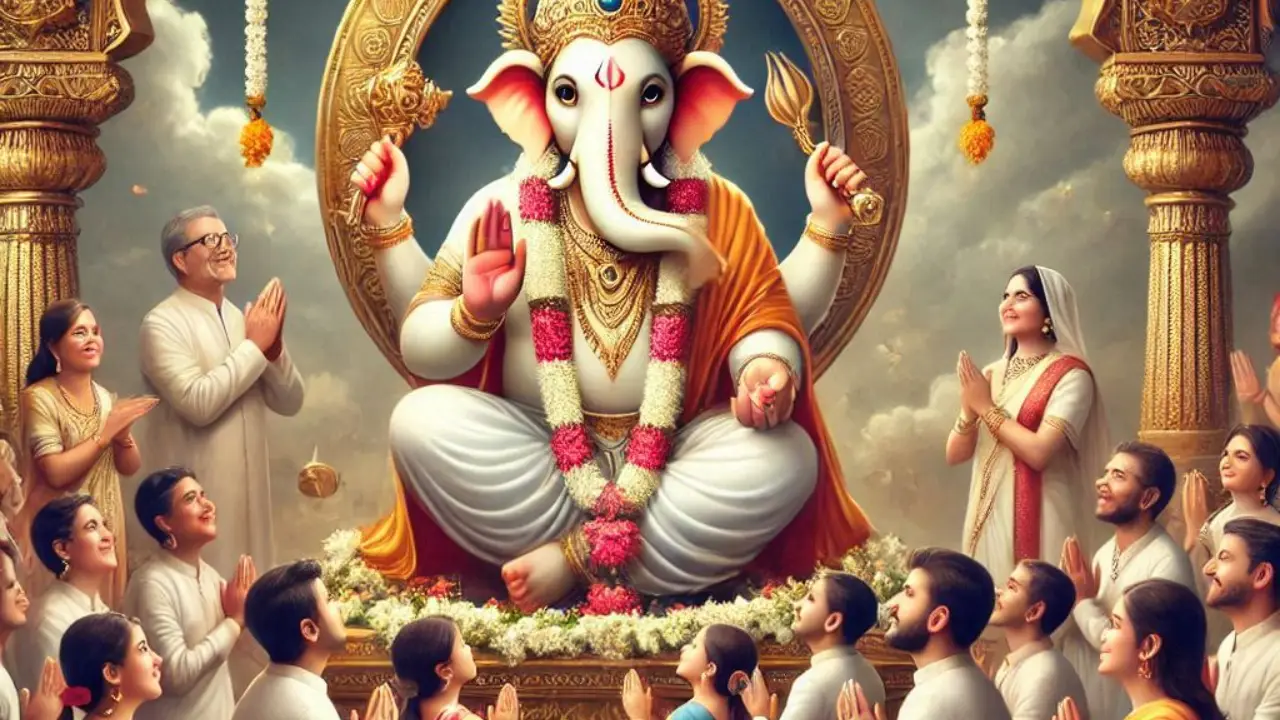The Ganesh Jayanti festival, a cherished celebration in the Hindu calendar, marks the birth anniversary of Lord Ganesha, the remover of obstacles and the embodiment of wisdom. This auspicious occasion, observed with fervor and devotion, holds deep cultural significance for millions worldwide. Let’s delve into the rich tapestry of traditions and rituals that define this joyous festival.
The Origins and Significance
Legend has it that Lord Ganesha, born to Lord Shiva and Goddess Parvati, symbolizes new beginnings and the triumph of intellect over adversity. Ganesh Jayanti, also known as Magha Shukla Chaturthi, falls on the fourth day of the waxing moon in the month of Magha according to the Hindu lunar calendar. This day is believed to be when Lord Ganesha manifested in his physical form.
Preparations and Pious Beginnings
In the days leading up to the Ganesh Jayanti festival, devotees clean their homes and decorate them with colorful rangolis, flowers, and traditional motifs. The atmosphere is charged with anticipation as families prepare delicious sweets like modaks, Lord Ganesha’s favorite delicacy. The day begins with devotees waking up early, bathing, and adorning themselves in new attire as a mark of respect to the deity.
Ganesh Pooja: Invocation and Offerings
Central to the Ganesh Jayanti festival celebrations is the Ganesh Pooja, a ritualistic worship of Lord Ganesha. Families gather in prayer rooms or temples, where priests conduct elaborate ceremonies invoking the blessings of the elephant-headed god. Offerings of fresh fruits, flowers, incense, and sweets are made to the deity amidst the chanting of sacred hymns.
Modak: Symbol of Sweet Blessings
No Ganesh Jayanti celebration is complete without the offering of modaks to Lord Ganesha. These sweet dumplings, made of rice flour or wheat flour stuffed with jaggery and coconut, symbolize the sweetness of life and the fulfillment of desires. It is believed that offering modaks pleases the lord and brings prosperity and good fortune to the devotees.
Community Celebrations and Festivities
The Ganesh Jayanti festival is a time for community bonding and camaraderie. People erect public pandals with vibrant decorations and lights. Grand processions carry Lord Ganesha idols with singing, dancing, and chanting. The air reverberates with the sounds of drums and cymbals as devotees immerse themselves in the festive spirit.
Reflection and Renewal
Beyond the festivities, the Ganesh Jayanti festival is a time for introspection and spiritual renewal. Devotees seek the blessings of Lord Ganesha to overcome obstacles in their lives and embark on a path of righteousness and wisdom. It is an opportunity to reflect on one’s actions, seek forgiveness for past wrongs, and strive for personal growth and development.
Preservation of Cultural Heritage
The Ganesh Jayanti festival serves as a poignant reminder of the importance of preserving cultural heritage and passing down age-old traditions to future generations. Through rituals and celebrations, communities uphold their rich cultural identity and strengthen the bonds of kinship and solidarity. The festival transcends boundaries of caste, creed, and religion, uniting people in a shared sense of reverence and devotion.
Devotional Music and Dance
Music and dance play a vital role in Ganesh Jayanti celebrations, adding to the festive fervor. Traditional bhajans (devotional songs) dedicated to Lord Ganesha echo through temples and households, uplifting the spirits of devotees. Colorful dances, such as the energetic Dhol-Tasha performances, symbolize joy and devotion, creating a vibrant atmosphere of celebration.
Symbolism in Rituals
Every aspect of Ganesh Jayanti rituals holds profound symbolism. The idol of Lord Ganesha, crafted from clay or metal, represents the divine presence among devotees. The act of immersing the idol in water during Visarjan symbolizes the cycle of life, death, and rebirth, reminding devotees of the transient nature of existence and the impermanence of material possessions.
Inclusive Festivities
The Ganesh Jayanti festival transcends barriers of age, gender, and social status, welcoming all to participate in its joyous celebrations. From young children to the elderly, everyone contributes to the festivities with equal enthusiasm. It is a time for families to come together, strengthening bonds and fostering a sense of unity and belonging within the community.
Global Observance
While Ganesh Jayanti is deeply rooted in Indian culture, its significance resonates across the globe. Hindu communities worldwide come together to commemorate the birth of Lord Ganesha, adapting traditions to their local customs and practices. This global observance reflects the universal appeal and enduring relevance of the festival’s message of hope, renewal, and divine grace.
Embracing Tradition
In conclusion, the Ganesh Jayanti festival stands as a testament to the enduring legacy of tradition and the power of rituals to connect us with the divine. As we celebrate the birth of Lord Ganesha, let us imbibe the spirit of wisdom, humility, and compassion embodied by the elephant-headed god. May this auspicious occasion bring joy, prosperity, and blessings to all.
Share your thoughts on how you celebrate Ganesh Jayanti in the comments below. Let’s keep the tradition alive together!

